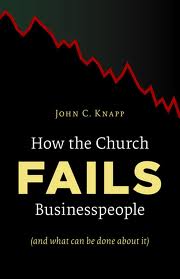Was the Reformation stillborn?

The priesthood of all believers was one of the major doctrines clarified by the 16th century Reformation. Yet, its impact on Protestant Christianity has not been all that significant. Some fifty years ago, one theologian argued that this vital doctrine was stillborn—that a very rigid division between the laity and the clergy still exists.
John C. Knapp would agree. In a recent article in Christianity Today, he argues that there is still a tendency to “elevate an ecclesiastical elite” above other members in the Protestant Church.
Anyone who has spent much time in the church is likely aware of its hierarchy of occupations. At the peak of the pyramid are full-time clergy and missionaries, followed closely by other paid workers in Christian ministry. Their jobs are seen as genuine callings, often validated by special ceremonies and rituals. Just below them in rank are the so-called helping professions—social workers, nurses, and the like—whose work aligns neatly with the church’s ministry priorities. Moving further down the pyramid we find the vast majority of Christians—salespeople, postal workers, accountants, business owners, electricians, corporate executives, lawyers, and countless others who compose most of the body of Christ. Seldom are their jobs described as callings or celebrated by the church.
This “hierarchy of occupations” is reflected in two sermons that John Knapp describes, one by a retired pastor and the other by a freshly ordained seminary graduate.
These two ministers at opposite ends of their careers had the best of intentions, but I doubt if either had ever considered the disastrous consequences—for the church or for individual believers—of a theology that elevates an ecclesiastical elite while subtly devaluing the rest of the body. It is an attitude that betrays a distorted conception of Christian vocation and calling, one that sorts human activities into contrived categories of secular and sacred, suggesting that God is more concerned with church-sponsored work than with Christians being faithful in a thousand other daily contexts.
We should ask ourselves what is being communicated when a church allots time on Sunday morning to commission a short-term mission team for ten days in Mexico, yet does nothing to commission new college graduates for their careers in business or government or education. The crippling and unambiguous message is that ten days of volunteer work are more important to the church—and, by implication, to God—than a Christian’s lifelong occupation.
Rather than preparing Christians for the “transformative work they must do in the world,” the church functions as a retreat or a refuge, focusing exclusively on the personal lives of those in attendance.
The church’s preoccupation with the private sphere of life is evident in many ways. Think of the litany of illnesses, deaths, and births in church newsletters and Sunday-morning prayers, reminding us weekly of what must surely matter most to God.
Quite often, the people in the pew feel the absence of concern about their daily work. Knapp points out that many of the folks interviewed in his research “shared a perception that the church is unconcerned about their lives in the public sphere:”
- “The church rarely addresses [work-related] issues. It seems to be more directed toward individual relationships with Christ.”
- “I do not think it is an interest of the church to help one resolve work problems.”
- “Family issues, drug and alcohol problems, crises of faith are concerns for my pastor. … It is hard for me to waste the time of one faced with life issues on a personal business issue. I’ve never heard anything to the contrary at any event I have attended at my church.”
- “Pastors are too busy taking care of the sick and dying to get involved in people’s work whims and troubles.”
John Knapp concludes with a series of questions that could—or better, should—serve to guide church leaders in addressing this vital area of discipleship.
- With active church members spending less than 2 percent of their waking hours at church, how much time is devoted to equipping them for their own public ministries?
- Is faith only of value when healing is needed?
- Is it not [also] essential to living our daily lives as instruments of God’s healing power in the world?
Can the contemporary church recover the doctrine of the priesthood of all believers? Can we do so in a way that enables our faith to inform our daily labors? Indeed, can we do so in a way that prepares Christians for the “transformative work they must do in the world.”
John C. Knapp’s article in Christianity Today, “Business Is the Church’s Business,” is an excerpt from his book, How the Church Fails Businesspeople (And What Can Be Done About It), Eerdmans, December 2011.


 July 10, 2012
July 10, 2012 







Comments are closed.